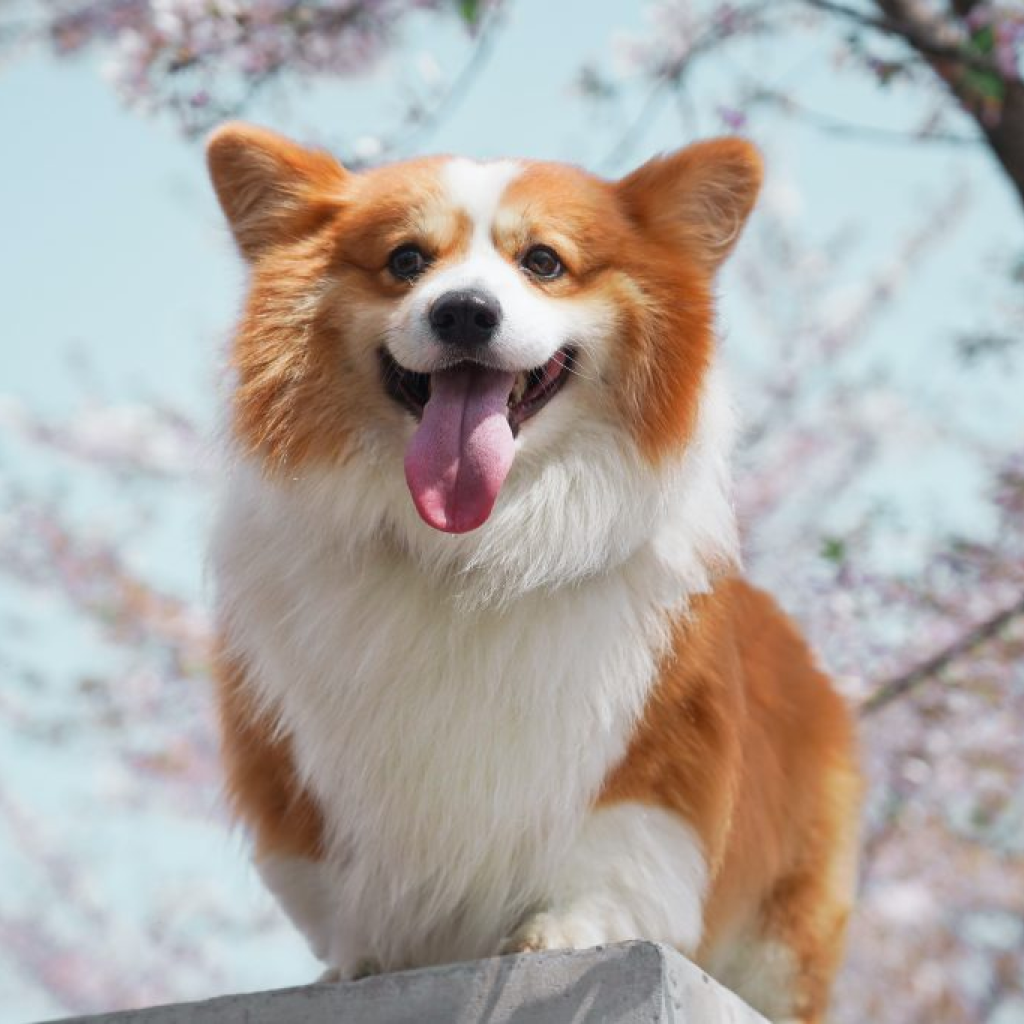
You’re in the doghouse now – a Corgi owner! Cute but feisty, they’re a handful. Fear not, this guide’s got your back. We’ll navigate housebreaking, obedience, and crate training. Tackling stubbornness and separation anxiety? We’ve got that covered. Let’s turn that rascal into the best-behaved furball on the block. Remember, it’s not just about commands, it’s about bonding. So, strap in and let’s train your Corgi together, making your bond stronger than ever.
Understanding Your Corgi’s Personality
Understanding your Corgi’s personality is the first step in effective training, so let’s explore the three main traits that define this breed: intelligence, sociability, and stubbornness. Known for their intelligence, the corgi breed, especially the Pembroke Welsh Corgi, can quickly grasp commands and tricks. However, this intelligence can make them stubborn, often resulting in a willful personality. You’ll need persistence and consistency in teaching them what’s acceptable behavior.
Corgi dogs are inherently sociable. They enjoy being around people and other pets, making them fantastic family dogs. However, this sociability can lead them to separation anxiety if left alone for too long. Regular social interactions will help develop their sociable nature and keep them happy.
Understanding your Corgi’s personality involves recognizing these traits and working with them, not against them. Use their intelligence to your advantage by making training sessions engaging and challenging. Counter their stubbornness with patience and positive reinforcement. And remember, their sociability means they need companionship, so include plenty of playtime and interaction in their daily routine. Understanding the Corgi temperament is key to unlock a successful training journey.
When training a Corgi puppy, leveraging their inherent traits can make the process smoother and more effective. For how to train a Corgi, consider their high energy and intelligence as a baseline for your approach. Corgi dog training should not only focus on physical activities but also on exercise and mental stimulation to satisfy their energetic and curious nature. Including Corgi training courses in your plan can provide a structured pathway for both you and your new puppy, covering everything from housebreaking to advanced commands.
Positive reinforcement is a key strategy in Corgi training, rewarding them for good behavior like going potty outside or using their dog bed. Remember, Corgis are known for their sociability and eagerness to please, making them responsive to rewards and praise. Regular potty breaks, a consistent schedule for feeding, and enough time for them to go to the bathroom are crucial in the early stages of house training. As dog owners, understanding that Corgis are actually quite intelligent can help you harness this trait effectively. Use it to teach them new tricks, and don’t forget to give the command in a clear, consistent manner.
Considering their need for companionship, integrate training into your daily interactions. Brush up on their grooming as part of the routine to get them used to handling. Their teething period is also an excellent time to introduce appropriate chew toys, redirecting them from unwanted chewing behaviors.
- Positive Reinforcement: Use treats and praises to encourage desired behaviors.
- Exercise and Mental Stimulation: Engage in activities that satisfy their high energy and intelligence.
- Housebreaking: Establish a routine for potty breaks and use commands consistently.
- Socialization: Introduce your Corgi to various environments and beings early on.
- Grooming: Regular brushing helps with bonding and keeps their coat in good condition.
- Teething Solutions: Provide appropriate chew toys to manage teething without damaging property.
Importance of Early Socialization
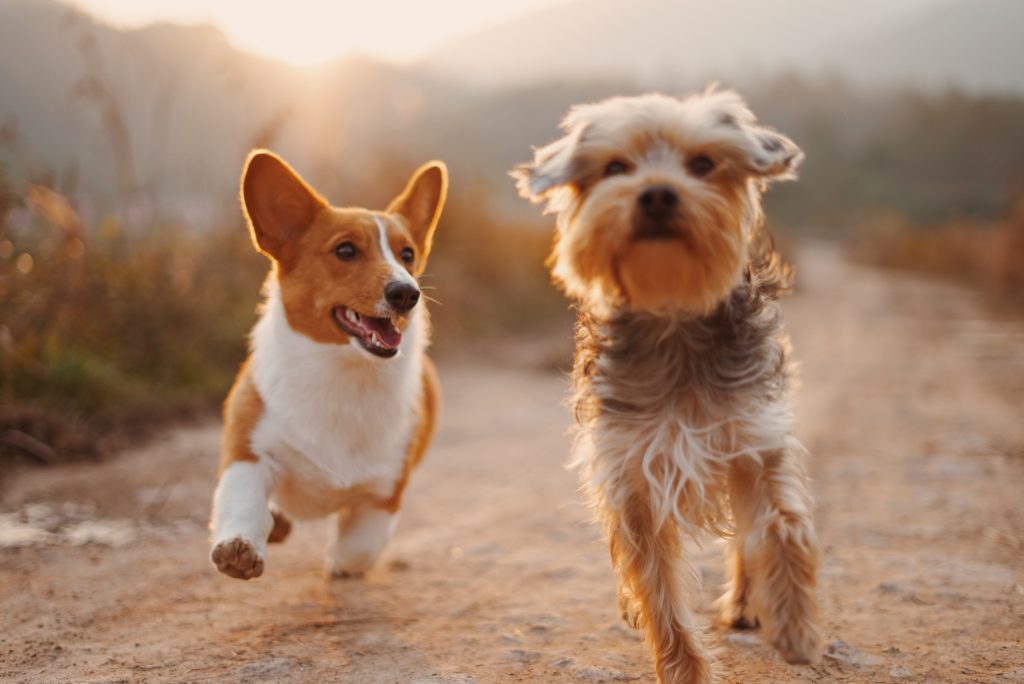
Regularly socializing your Corgi from a young age is crucial, especially given their sociable nature and need for companionship discussed earlier. This early socialization forms a foundational part of your Corgi puppy training.
During this stage of training a Corgi, the goal is to expose your pup to as many new people, places, sounds, and experiences as possible. This exposure helps your Corgi puppies to grow up to be well-rounded and confident dogs.
Here are some key points to remember when socializing your corgi:
* Introduce your Corgi to a variety of people, ensuring they encounter different ages, sizes, and ethnicities.
* Let your pup explore different environments – parks, busy streets, quiet paths, and bustling pet stores.
* Expose your Corgi to a range of sounds, from loud traffic to the noise of the vacuum cleaner.
* Allow your Corgi to meet other dogs and animals, always under controlled and safe circumstances.
Effective House Training Strategies
After you’ve started socializing your Corgi and they’re becoming more familiar with their surroundings, it’s time to move onto the next vital step of their training – effective house training. Training Corgi puppies, especially those lovely Pembroke Welsh Corgi puppies, requires consistency and patience.
Start by establishing a routine. Feed your Corgi puppy at the same times each day and take them out to eliminate first thing in the morning, last thing at night, and after meals. Always take them to the same spot to reinforce where they should go.
Use a command, like “go potty,” each time they’re in the right spot. Reward them immediately with praise or a small treat when they’ve done their business. This reinforces positive behavior and makes training your Corgi puppy a more enjoyable process for both of you.
Accidents will happen. Don’t scold or punish your Corgi puppy. Instead, clean up thoroughly to remove any scent that might attract them back to the same spot. Remember, successful Corgi training is about patience, consistency, and positive reinforcement. You’ll have a well-trained Corgi puppy in no time.
Delving deeper into how to train your Corgi, it’s essential to recognize the unique traits of this dog breed. Corgis, known for their intelligence and eagerness to please, can excel in training a Corgi puppy with the right approach. Incorporating Corgi training tips into your routine, such as offering mental stimulation through puzzle toys and learning games, can significantly enhance their learning experience. Raising a Corgi involves more than just potty training; it’s about ensuring they grow into well-adjusted adults. Teaching your Corgi to bark on command and to stop barking are valuable skills that will help keep your home peaceful. Remember, Corgis were bred to herd, so activities like playing fetch can satisfy their instinctual drives.
To effectively teach your Corgi, start by engaging them in basic obedience training from a young age. Commands like sit, stay, come, and down are foundational. Training your Corgi puppy also means socializing them properly, introducing them to various environments, people, and other animals under controlled situations. This early socialization helps prevent behavioral issues later on. Keep your Corgi engaged with regular grooming sessions; this not only keeps them clean but also helps in building a bond between you and your puppy. Remember, the advice from your breeder can be invaluable in understanding the specific needs of your Corgi. Start training your Corgi with these strategies, and you’ll enjoy the benefits of having a well-trained adult Corgi that’s both a joy and a loyal companion.
| Training Aspect | Description |
|---|---|
| House Training | Establish a routine for feeding and elimination. Use consistent commands and reward success. |
| Socialization | Introduce your Corgi to various settings and beings to foster adaptability and reduce anxiety. |
| Obedience Training | Basic commands like sit, stay, come, and down form the core of a well-behaved Corgi. |
| Bark Training | Teach your Corgi to bark on command and to cease barking, balancing communication and quiet. |
| Mental Stimulation | Engage your Corgi with puzzle toys and games to satisfy their intellectual curiosity and energy. |
Basic Commands for Your Corgi
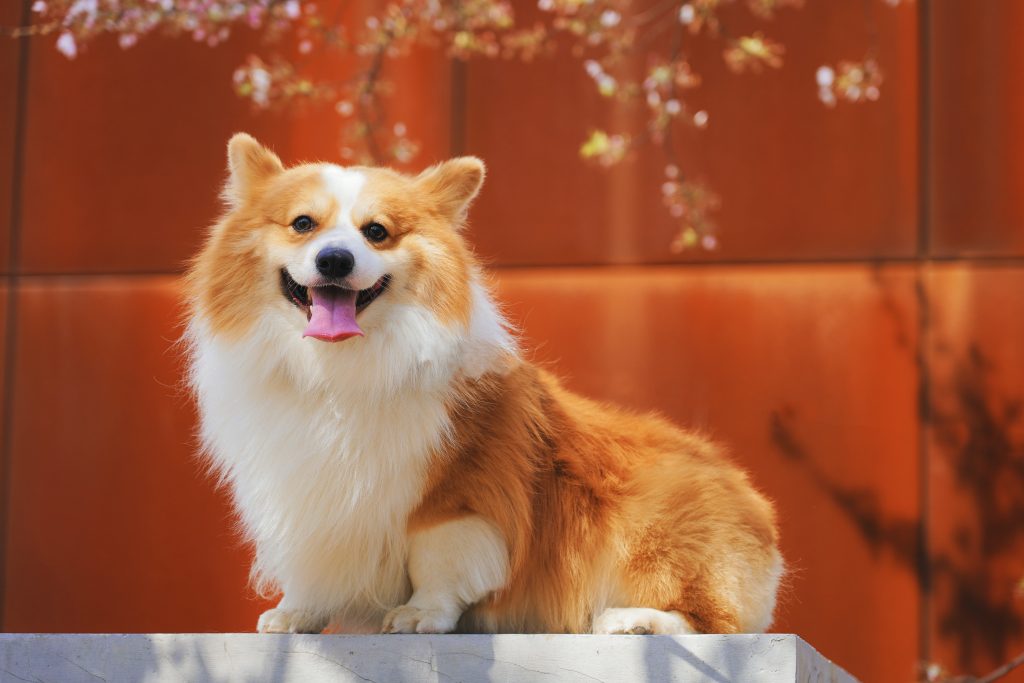
Now that you’ve mastered house training strategies with your Corgi, it’s time to focus on teaching them some basic commands. Whether it’s Pembroke Welsh Corgi or Cardigan Welsh Corgi, these commands are essential for every Corgi owner to know.
– **Sit**: This command is fundamental. Use a treat to guide your Corgi’s nose upward while gently pushing down their backside. Once they sit, say “sit” and give them a treat.
– **Stay**: Once your Corgi has mastered “sit,” introduce “stay.” With your Corgi sitting, extend your hand, palm out, and say “stay.” Take a few steps back, and if they stay, reward them.
– **Come**: This command can be a lifesaver. With your Corgi a short distance from you, squat down, open your arms, and say “come.” Reward them when they come to you.
– **Down**: Guide a treat from your Corgi’s nose down to the floor while saying “down.” Once they’re lying down, reward them.
Curbing Corgi’s Stubborn Streak
While you’re steadily mastering basic commands with your Corgi, it’s crucial to address their often stubborn streak, which can sometimes challenge the training process. Corgis are smart and independent, traits that can manifest as stubbornness. But don’t worry, you can curb this streak effectively.
Firstly, apply consistency. Dogs crave routine and predictability, and Corgis are no different. Be consistent in your commands, rewards, and consequences. This consistency sends clear messages about what’s expected, leaving less room for stubborn behavior.
Secondly, use positive reinforcement. Rather than punishing bad behavior, reward good behavior. When your Corgi follows a command, give them a treat or praise. They’ll associate obedience with positive outcomes and will be more likely to repeat that behavior.
Lastly, mix up the training sessions. Corgis can get bored with repetition, which can make them seem stubborn. Try to make the training sessions fun and varied. Introduce new tricks, change the training location, or incorporate play into the sessions.
Leash Training Your Corgi
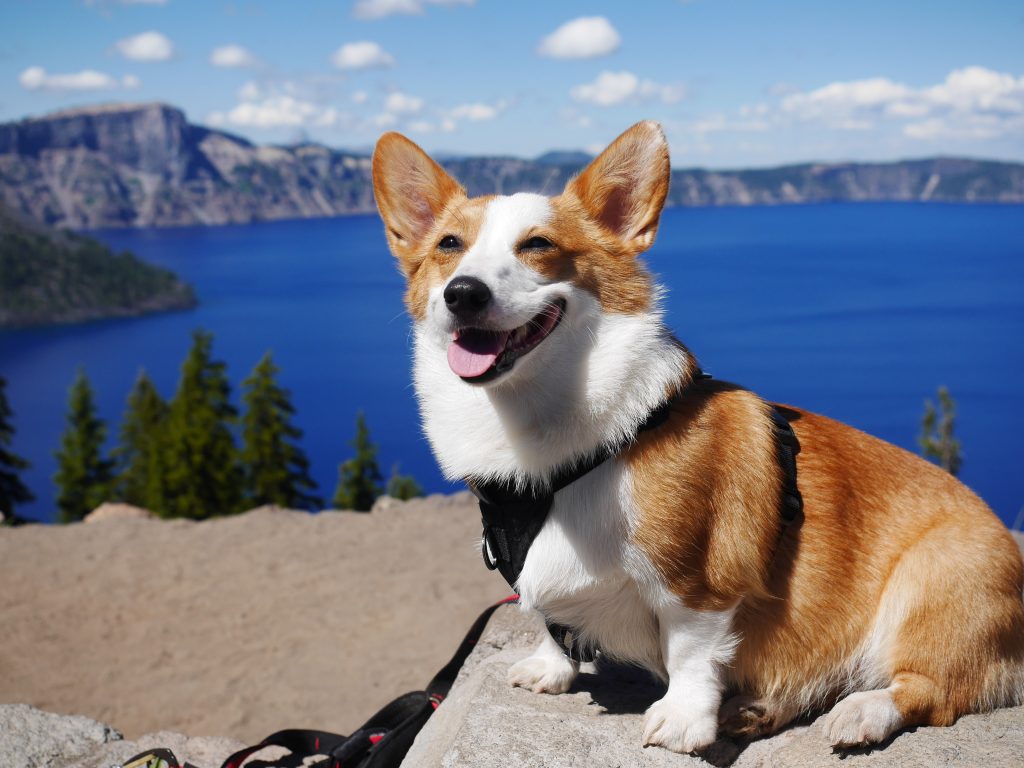
In tackling your Corgi’s stubborn streak, you’ll find that leash training is an essential next step in their overall training. This exercise not only provides control during walks but also reinforces your role as the pack leader.
To start, introduce the leash in a relaxed environment. Let your Corgi sniff it and get used to its presence. Then, attach the leash and let them walk around without direction. This helps them get comfortable with the feeling of the leash.
Next, guide your Corgi on short indoor walks. Use treats to make this a positive experience. Gradually increase the length of your walks and introduce outdoor environments. Remember, patience is key.
Here are some quick tips to remember during leash training:
* Always use positive reinforcement, rewarding good behavior.
* If your Corgi pulls, stop walking. This teaches them that pulling won’t get them anywhere.
* Practice ‘sit’ and ‘stay’ commands while on the leash to reinforce obedience.
* Keep training sessions short and fun to maintain your Corgi’s interest.
Leash training your Corgi not only ensures safe and enjoyable walks but also strengthens your bond with your furry friend.
Dealing With Corgi’s Separation Anxiety
Dealing with your Corgi’s separation anxiety can be a challenging part of training, but with patience and the right techniques, you can help them feel more secure. It’s crucial to understand that your pet’s anxiety comes from their fear of being alone, not from any misbehavior.
Start by creating a safe space for your Corgi. This could be a cozy corner or their crate, filled with their favorite toys and blankets. Encourage them to spend time there while you’re present, so they associate it with good memories.
Next, try to desensitize them to your departure cues. These are actions like picking up your keys or putting on your coat that signal you’re about to leave. Perform these actions multiple times a day without actually leaving, so your Corgi stops associating them with your absence.
Gradually increase the time you spend away from your Corgi. Start with a few minutes, then an hour, then a few hours. Upon returning, reward them for staying calm.
Encouraging Positive Behaviors
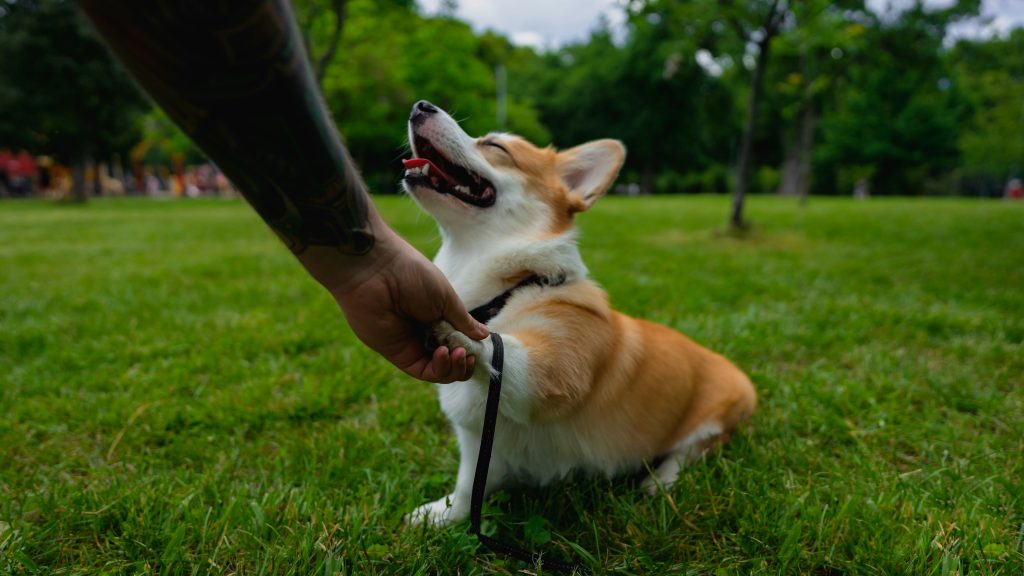
After you’ve successfully managed your Corgi’s separation anxiety, it’s time to focus on encouraging positive behaviors. Training your Corgi to follow rules and commands doesn’t have to be a daunting task. With patience and consistency, you can shape your furry companion’s behavior and strengthen your bond.
Here are some tips to get you started:
– **Use Positive Reinforcement:** Always reward your Corgi for good behavior. This could be through treats, praises, or petting. It’s a way to tell them they’ve done well, instilling a sense of accomplishment.
– **Start with Basic Commands:** Teach them simple commands like ‘Sit’, ‘Stay’, ‘Come’, and ‘No’. Once they master these, gradually introduce more complex ones.
– **Be Consistent:** Keep your commands and signals consistent to avoid confusing your Corgi. If you’ve used a certain word or hand gesture for a command, stick to it.
– **Socialize Your Corgi:** Expose them to various environments, people, and other pets. This will help them learn to behave appropriately in different situations.
Avoiding Common Training Mistakes
To ensure your Corgi training is effective and rewarding, it’s crucial to avoid some common mistakes. First, don’t make training sessions too long or intense. Corgis, like most dogs, have short attention spans. A few short, focused sessions each day work better than one long one.
Second, avoid yelling or punishing your Corgi when they make mistakes. This could instill fear rather than understanding. Instead, focus on positive reinforcement. Reward good behavior with treats, praise, or cuddles.
Third, don’t expect instant results. Patience is key in dog training. Change won’t happen overnight, so don’t get frustrated when your Corgi doesn’t pick up commands immediately. Repeat and reinforce behaviors for better comprehension.
Fourth, inconsistency can be confusing for your Corgi. Ensure you’re consistent with commands and rewards, so your Corgi understands what’s expected.
Lastly, don’t ignore socialization. Corgis need to interact with other dogs and people. This helps them become more comfortable in different situations and reduces the chances of aggressive behavior.
Avoid these mistakes, and you’ll have a well-trained Corgi that’s a joy to be around.
Maintaining Consistency in Training
Keeping your training methods consistent is vital for your Corgi to understand and follow commands effectively. Dogs thrive on routine and predictability, and Corgis are no exception. They’re intelligent, so they’ll quickly pick up on inconsistencies and may try to exploit them. You must remain consistent in your approach, or you run the risk of confusing your Corgi, which can slow down their progress significantly.
To maintain consistency in training:
* Stick to the same commands: Don’t use ‘down’ one day and ‘lie down’ the next, as it’s confusing.
* Keep the rules constant: If your Corgi isn’t allowed on the couch, don’t make exceptions.
* Use consistent rewards: Find what motivates your Corgi, be it treats or praise, and stick with it.
* Maintain the same training routine: Regular, short training sessions work best.
Conclusion
So, you’ve embarked on the rewarding journey of training your Corgi. Remember, patience and consistency are key, and always reward good behavior. Did you know a well-trained Corgi is not just happier, but also tends to live longer? Studies have shown that dogs with good manners have lower stress levels, leading to a healthier life. Keep up the good work; your Corgi is counting on you!
